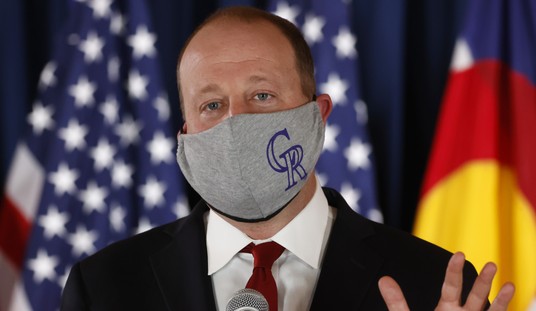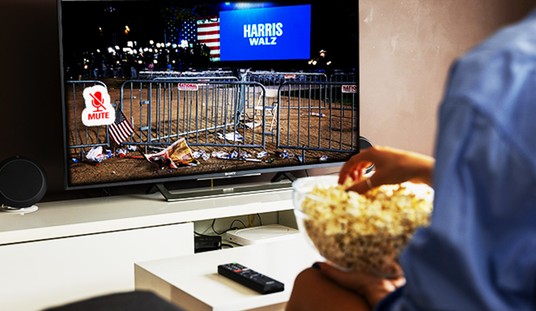
Jazmine Hughes, who is black, is an associate editor at The New York Times Magazine. It should come as no surprise that Hughes is very involved with the “1691 Project,” the Times’ attempt to rewrite history. In 2018, she earned a spot on Forbes “30 Under 30” list of influential media figures. In an interview from that time, she described herself as a “champion of diverse storytelling.”
Breitbart’s Haris Alic discovered a series of tweets Hughes had written between February 2015 and May 2017, in which she ridicules whites and makes stereotypical anti-Semitic comments.
Here are some of them:
WHO is Beth Israel and how does she have so many hospitals??? Like trust fund or lotto ticket or
— Jazmine Hughes (@jazzedloon) March 22, 2014
If I'm at the deli and I don't thank the cashier by saying "have a nice day. Even though you white" y'all better call the fuck out
— Jazmine Hughes (@jazzedloon) March 2, 2015
The Deadline article is trash. I'm not linking it here because you don't have to read it! Don't waste yr time with nonsense
— Jazmine Hughes (@jazzedloon) March 25, 2015
Hi, my name is Jazmine Hughes, and my self-care regimen is 🚨🚨ignoring white nonsense🚨🚨
— Jazmine Hughes (@jazzedloon) March 25, 2015
BAE IS LITERALLY STANDING ON THE COAST OF MAINE WITH A CUP OF COFFEE THINKING ABOUT HOW GREAT AMERICA IS cc @mallelis pic.twitter.com/ryzMsmPtvj
— Jazmine Hughes (@jazzedloon) June 14, 2015
https://twitter.com/jazzedloon/status/612785902792912896
Every time Viola Davis stunts with her natural hair on TV is one fewer time I have to explain gravity and curls to a dumb white person SOOOO
— Jazmine Hughes (@jazzedloon) September 21, 2015
And I thought I was mad at white people when it was rumored that Drake was dating Taylor
— Jazmine Hughes (@jazzedloon) November 9, 2016
.@allisona15 good morning everyone except for white women, and especially and deliberately except for you
— Jazmine Hughes (@jazzedloon) November 11, 2016
honestly it was just a matter of time before jenna slid in to confirm that, yes, jews are inDEED good with money
— Jazmine Hughes (@jazzedloon) June 30, 2017
In 2015, shortly before joining The New York Times Magazine, Hughes wrote an article for The New Republic entitled “How Many White People Does It Take to Ruin a Good Joke? The gentrification of racial humor.” She tweeted:
My working title for this was "What can take yr freedom, but can't take a joke? White people" but that was (rightfully!) edited out 😀
— Jazmine Hughes (@jazzedloon) February 6, 2015
She begins her TNR article by telling her readers, “I love making fun of white people. I do it every day.” She writes:
Racialized humor is an instrument that people of color can use to placate themselves in the face of the overwhelming reality: It’s just better to be Caucasian.
By making fun of white people, people of color can, in a small way, push back against stereotypes, opposing racial humor by inverting it.
This is how the party ends—with white people wanting in on the joke so badly that they create a separate category of ‘cool’ white people who mock their own whiteness in an effort at solidarity.
Hughes appears to be saying that, because she believes it’s “better” to be Caucasian, it’s okay for people of color to make fun of white people. It somehow relieves the burden they carry because they were born black or brown.
In her piece, she lists several “white people” jokes that blacks have told. She sees no problem with that. But she warns that a white person telling a white person joke has to be very careful.
All of which is to say that the teller of white-people jokes bears a special responsibility. White-people jokes don’t punch up; at best, they punch sideways, but usually, they punch down. This doesn’t mean that white people can never tell them. But I do believe that anyone who tells a white-person joke really has to understand what they’re doing. “Jokes have power to be tools to dismantle oppression, to prove racism, but also to reinforce racism and privilege,” says Keisha Zollar, an African American comedian with the Upright Citizens Brigade. “Is the comedian telling the joke aware of that power?”
Yikes, a white person who tells a white person joke is subject to scrutiny while a black person faces none. It’s okay to ridicule a white person because they are lucky to be white. But if a white person ridicules a person of color, they are racist.
Hughes clings to this narrative so tightly, she doesn’t see the glaring double standard involved. Unfortunately, many people of color share this mindset.
As long as this attitude persists, racism will continue to a be problem in this country.














Join the conversation as a VIP Member